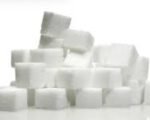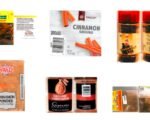There’s magic waiting to happen in your kitchen when you mix baking soda with lemon juice. Discover the fascinating chemical reaction that occurs when these household staples combine, and explore the multitude of benefits that result from this simple yet powerful combination. From cleaning surfaces to freshening breath and even exfoliating skin, learn about the science behind the reaction and how you can harness its potential for various uses in your home.
Key Takeaways:
- Chemical Reaction: When baking soda (a base) is mixed with lemon juice (an acid), they react to produce carbon dioxide gas, water, and salt.
- Benefits: Mixing baking soda with lemon juice can create a natural cleaning agent, freshen breath, and be used for skin exfoliation and hair care.
- Precautions: It is important to test on a small patch of skin before using the mixture on a larger area and avoid sensitive skin areas due to the acidity of lemon juice.
- Alternative Uses of Baking Soda: Baking soda can be used to remove odors, clean silverware, and more.
- Alternative Uses of Lemon Juice: Lemon juice can be used in cooking and for health benefits such as boosting immunity and aiding digestion.
Science behind the Reaction
Explanation of the chemical reaction
For the reaction between baking soda and lemon juice, it is an acid-base reaction where the acid in the lemon juice reacts with the baking soda, a base, to produce carbon dioxide gas. The chemical equation for this reaction is NaHCO3 + H+ → Na+ + CO2 + H2O. In simpler terms, when you mix these two household items, a fizzing and bubbling reaction occurs due to the production of carbon dioxide, water, and salt.
Benefits of Mixing Baking Soda with Lemon Juice
The combination of baking soda and lemon juice offers various benefits. The mixture acts as a natural cleaning agent with the abrasive properties of baking soda and the acidity of lemon juice working effectively to clean surfaces and remove stains in your home. When used as a mouthwash, this combination freshens breath and helps eliminate germs and bacteria in your mouth.
The reaction between baking soda and lemon juice is not only a fun chemical experiment but also provides practical benefits for household cleaning and personal care.

Uses of Baking Soda and Lemon Juice
Clearly, mixing baking soda with lemon juice has a variety of uses beyond just creating a chemical reaction. One of the popular uses includes skin exfoliation and hair care.
Skin exfoliation and hair care
Soda. Mix baking soda and lemon juice to create a paste that can be used to exfoliate your skin. Apply the paste to your face and gently scrub in a circular motion. The paste removes dirt and dead skin cells, revealing smoother and brighter skin. The mixture can be used as a hair mask to remove buildup and cleanse the scalp, adding shine to your hair.
Precautions to take when using the mixture
When using the baking soda and lemon juice mixture, it is crucial to take precautions to avoid any adverse reactions. Test on a small patch of skin before applying the mixture to a larger area to ensure you are not allergic to any of the ingredients. Avoid using the mixture on sensitive skin areas, such as the face, if you have sensitive skin to prevent skin irritation.
It is imperative to be cautious when using the baking soda and lemon juice mixture to prevent any adverse reactions. Testing the mixture on a small area of skin and avoiding sensitive areas can help prevent skin irritations.
Alternative Uses of Baking Soda and Lemon Juice
Baking soda: removing odors and cleaning silverware
Keep your home fresh and your silverware sparkling by utilizing baking soda for various household tasks. An excellent odor eliminator, baking soda can be placed in the fridge, shoes, or sprinkled on carpets to remove unpleasant smells. Mixing baking soda with water creates a paste that is perfect for cleaning silverware. Simply apply the paste to your silverware, gently scrub, and watch as tarnish disappears, leaving your silverware looking polished and pristine.
Lemon juice: cooking and health benefits
Another versatile ingredient, lemon juice can be used in a variety of culinary dishes to add a burst of flavor. From marinades for meats to a natural preservative for fruits and vegetables, the uses of lemon juice in cooking are endless. Beyond the kitchen, lemon juice offers health benefits as well. Packed with vital minerals and vitamins, lemon juice can boost your immunity, aid digestion, and even help detoxify your liver.
Furthermore, lemon juice can be a great addition to your daily routine to promote overall health and well-being. With its richness in nutrients, incorporating lemon juice into your diet or beauty regimen can provide a range of benefits that support your body’s functions.
Conclusion
From above, you have learned that mixing baking soda with lemon juice results in a chemical reaction that produces carbon dioxide gas. This reaction has various benefits such as serving as a natural cleaning agent, freshening breath, and aiding in skin exfoliation and hair care. However, it is crucial to take precautions when using this mixture to avoid any adverse reactions, especially if you have sensitive skin or allergies.
Both baking soda and lemon juice have alternative uses beyond their combination. Baking soda can be used to remove odors and clean silverware, while lemon juice can be used in cooking and for its health benefits. Overall, understanding the science behind this reaction and exploring its benefits can enhance your household cleaning routine and personal care regimen.
FAQ
Q: What is the scientific explanation behind what happens when baking soda is mixed with lemon juice?
A: When baking soda (a base) is mixed with lemon juice (an acid), they react and create a fizzing and bubbling reaction due to the acid in the lemon juice reacting with the baking soda to produce carbon dioxide gas.
Q: What are the benefits of mixing baking soda with lemon juice?
A: Benefits include natural cleaning agent properties, freshening breath, skin exfoliation, and hair care benefits.
Q: What are some precautions to take when mixing baking soda with lemon juice?
A: Precautions include testing on a small patch of skin, avoiding sensitive areas if you have sensitive skin, and monitoring for any adverse reactions.
Q: What are some alternative uses of baking soda besides mixing it with lemon juice?
A: Baking soda can be used to remove odors, clean silverware, and as a gentle abrasive for cleaning various surfaces.
Q: What are some alternative uses of lemon juice besides mixing it with baking soda?
A: Lemon juice can be used in cooking as a marinade, for flavoring salads, and it also provides health benefits such as boosting immunity and aiding digestion.















